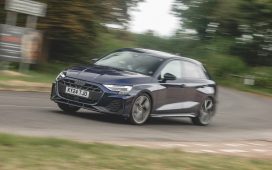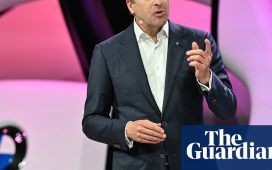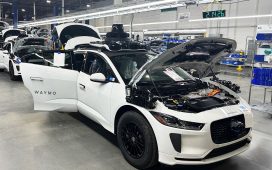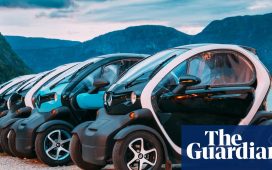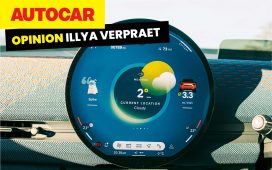Honda and Nissan have put aside the “traditional approach” of fierce rivalry to join forces and work together on electric vehicle technology as Japan’s carmakers try to catch up with Chinese competitors.
The Japanese manufacturers will work together on technology for EVs, including components and software, after signing a memorandum of understanding on Friday.
Honda and Nissan, respectively the country’s second- and third-largest carmakers behind Toyota, aim to cut costs by combining resources.
Traditional manufacturers are struggling to compete profitably with upstart rivals as the electric vehicle sector grows rapidly, adding significant development costs.
China’s BYD and Li Auto have gained market share in a competitive industry, alongside Elon Musk’s Tesla. Earlier this year, BYD, which stands for Build Your Dreams, overtook Tesla as the world’s top-selling electric carmaker.
Nissan was an early mover in EVs: its all-electric Leaf model became what it claimed was the world’s first mass-market electric car when it was launched in 2009 from its Sunderland factory. But it has struggled to keep pace with Chinese players able to access cheaper raw materials and labour, as well as greater scale and potential customers.
The Nissan chief executive, Makoto Uchida, said: “Emerging players are very aggressive and are making inroads at incredible speed.
“We cannot win the competition as long as we stick to conventional wisdom and a traditional approach.”
Honda’s president, Toshihiro Mibe, said: “We are strapped for time and need to be speedy. In 2030, to be in a good position we need a decision now.
“The rise of emerging players is becoming faster and stronger. Companies that cannot respond to the changes will be wiped out.”
Honda and Nissan each sell more than 3m cars globally and the partnership is expected across operations in Japan and overseas.
The agreement between the companies is non-binding, meaning the partnership could still fall apart, and does not involve any capital. It has been reported that, in late 2019, Japanese government officials tried to convince the carmakers to enact a full-scale merger to create a national champion, but the idea was swiftly rejected by the companies.
David Bailey, a professor of business economics at the Birmingham business school, said: “It’s two Japanese laggards playing catch up. This highlights the threat from China to western car companies, including those in Japan, and the advantages that China has in being able to produce cars at 25% to 30% lower in price.
after newsletter promotion
“The Chinese government has backed EV exports in a big way and you see more Chinese cars on the road as a result.”
In the UK, Honda closed its factory in Swindon in 2021 after 35 years. Nissan recently concluded production of the second-generation Leaf in Sunderland, with its successor expected to be made there from 2026.
Nissan last year moved to rebalance its troublesome partnership with Renault, with the French carmaker reducing its stake in the Japanese company to 43% and Nissan increasing the voting rights linked to its 15% holding in its partner company.
Renault used the proceeds to invest in its own EV unit, Ampere. Uchida has previously said that Ampere is viewed as “an enabler for Nissan to participate in new business opportunities in Europe”.
The pair loosened their two-decade-long alliance after an astonishing corporate scandal which involved former boss Carlos Ghosn being arrested for allegedly underreporting his income and then later escape house arrest by hiding in a musical equipment box and fleeing via a private jet.
Although EVs are an established part of the market, carmakers and suppliers are still racing to develop the next generation of technology, including solid-state batteries that have been touted as a route to improve the range of vehicles, as well as the safety of the battery.
The industry is also at the centre of geopolitical tensions, amid political concerns about an overdependence on raw materials from China. Late last year, Northvolt, Europe’s only large homegrown electric battery maker, said it had made a “breakthrough” sodium-ion battery that could counter the problem.

